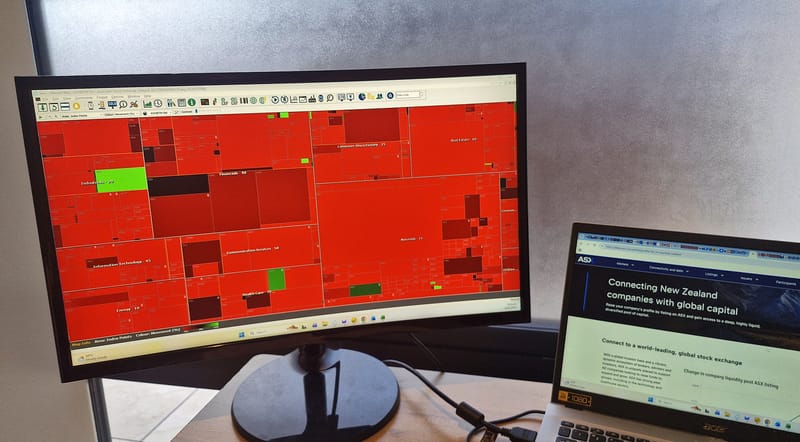Wall Street turns lower as fear returns; F5 sinks on security breach
French stocks rallied as Lecornu survives no-confidence vote.

US stocks turned lower as Wall Street’s fear gauge climbed to a five-month high and gold prices extended their record run, with regional US banks attracting attention after Zions Bancorp and Western Alliance acknowledged exposure to borrowers facing legal action.
Meanwhile, cybersecurity firm F5 led the S&P 500 lower after the firm said a nation-state actor gained access to some of its systems, with China later attributed as backing the breach.
Across the Atlantic, French stocks rallied for a second day after prime minister Sebastien Lecornu survived two votes of no-confidence at a cost of President Emmanuel Macron’s planned pension reform.
And Nestle posted its biggest daily gain since 2008 after unveiling better sales than expected and announcing widespread job cubs under its new chief executive.
Nervous times
Stocks on Wall Street ran out of puff, with the S&P 500 index down 1.1% at 7.30am in Auckland as investors’ nerves were rattled by regional lenders. Zions Bancorp said it took a US$50 million charge to cover two loans facing legal actions, while Western Alliance filed its own suit against borrowers it accused of committing fraud.
The CBOE’s volatility index, known as Wall Street’s fear gauge, spiked 13% to its highest level since May and Bitcoin dropped 2.7% to US$108,322 at 7am in Auckland, with investors continuing to chase the relative safety of gold as the precious metal’s futures pushed up 2.5% to US$4,308 an ounce.
“After trading positively during the morning session, the S&P500 has spent the afternoon weaker and shows a modest fall,” Bank of New Zealand senior markets strategist Jason Wong said in a note. “The risk-off vibe spilled over into the Treasuries market, where the two-year rate fell as much as 8 basis points to 3.41%, its lowest level since 2022.”
Cybersecurity firm F5 led the S&P500 lower, down 12% in late trading after saying a nation-state actor breached its system and gained access to some areas. Bloomberg later reported the breach had been attributed to Chinese-backed hackers.
Rolling results
US earnings season continued with airlines broader weaker after United Airlines fell short of analysts’ expectations, while declines for BNY Mellon, Charles Schwab and US Bancorp were more modest as the firms posted strong results.
Hewlett Packard Enterprise sank 9.6% after projecting slower revenue growth while Salesforce rallied on its better-than-expected result.
JB Hunt Transport Services surged 22% after beating earnings expectations, posting the biggest gain on the S&P500.
Across the Atlantic, stock markets were stronger as the UK’s FTSE 100 index rose 0.1% and Germany’s DAX 30 gained 0.4%, while France’s CAC 40 jumped 1.4% to a seven-month high after prime minister Sebastien Lecornu survived two votes of no-confidence, the second of which required a deal to suspend President Emmanuel Macron’s plans for reforming pensions.
The kiwi fell to 49.02 euro cents at 7am in Auckland from 49.23 cents yesterday.
Switzerland’s Nestle jumped 9.3% in its biggest daily gain since 2008 after the food giant outlined plans to cut 16,000 jobs and revisit existing some of its more-than-2,000 brands under new chief executive Philipp Navratil.
That nervous tone is set to carry on to the antipodes, with Australian futures pointing to a 0.5% decline for the S&P/ASX 200 index when trading opens across the Tasman, while New Zealand’s S&P/NZX 50 index is down 0.6% so far this week. The kiwi dollar traded at 57.31 US cents at 7am in Auckland from 57.40 cents yesterday.
There’s no major local data scheduled to be released today.
Reporting by Paul McBeth. Image from Philipp Katzenberger on Unsplash.







